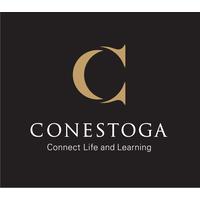Certificate in Motive Power Techniques - Heavy Duty Equipment Repair
If you are a logical thinker with mechanical abilities and want to study an area that leads into a challenging career that is in-demand, this program is a good fit for you. Through a combination of hands-on activities and theory-based classes, graduates from the Motive Power Techniques - Heavy Duty Equipment Repair certificate program are well-positioned to enter and be successful working in this trade area. Throughout the duration of your program, you will develop a strong foundation of technical skills needed for the heavy-duty equipment trade.
You will develop safe working practices in the use of tools, machinery, and equipment and will apply basic communication, documentation, information technology, and computer skills to support a motive power-related work environment. To round out your training, you will be introduced to the basics of running a motive power business and relevant legal issues.
As a graduate of the certificate program, you will have an opportunity to receive an automatic exemption from Level 1 of the Heavy Duty Equipment Technician apprenticeship in-school training should you choose to pursue that career pathway.
Campus Information
Guelph
Conestoga’s Guelph campus, located in the northwest end of the city, is a provincial leader in education and training for the motive power trades, including automotive, truck and coach, heavy equipment, recreational vehicles and motorcycles. The campus also provides business-oriented programs, including Business Foundations, General Business and Office Administration as well as academic upgrading and career-focused programs.
Intakes
- Jan
- May
- Sep
Application Processing Time in Days: 20
Application Process
Minimum English Language Requirements
| English Level Description | IELTS (1.0 -9.0) | TOEFL IBT (0-120) | TOEFL CBT (0-300) | PTE (10-90) | |
|---|---|---|---|---|---|
| Expert | 9 | 120 | 297-300 | 86-90 | |
| Very Good | 8.5 | 115-119 | 280-293 | 83-86 | |
| Very Good | 8 | 110-114 | 270-280 | 79-83 | |
| Good | 7.5 | 102-109 | 253-267 | 73-79 | |
| Good | 7 | 94-101 | 240-253 | 65-73 | |
| Competent | 6.5 | 79-93 | 213-233 | 58-65 | |
| Competent | 6 | 60-78 | 170-210 | 50-58 | |
| Modest | 5.5 | 46-59 | 133-210 | 43-50 | |
| Modest | 5 | 35-45 | 107-133 | 36-43 | |
| Limited | 4 | 32-34 | 97-103 | 30-36 | |
| Extremely Limited | < 4 | < 31 | < 93 | < 30 |
Job Opportunity Potential
Connect life and learning—that’s the Conestoga promise. For more than 50 years, the college has delivered on that promise through career-focused education and training that supports individual success, community engagement and regional prosperity.
None of our success—past, present or future—would be possible without our dedicated team of faculty, administrators and support staff. Working at Conestoga offers many benefits and opportunities to make a difference in your community by being part of an ongoing effort to invest in the current and future workforce of Ontario.
Mission
To promote the prosperity and well-being of the communities we serve through the delivery of programming, workforce development, and industry-focused research that meets local, regional, and international demands
Vision
A recognized leader in applied learning and research that enables student success in meeting workforce demands
What we offer
Conestoga is one of Ontario's fastest growing colleges and a leader in polytechnic education, providing a full range of career-focused education, training and applied research programs to prepare students for success in the knowledge economy and to promote economic prosperity throughout our region and across Ontario. Our goal is to build on the success we have had, and we invite you to learn more about Conestoga.
Conestoga provides:
Competitive compensation
Comprehensive benefits package and generous vacation entitlement
Defined benefit pension plan
Employee and family assistance programs
Tuition assistance
Professional development
It is Professional Development's mission to promote the college's goal of excellence in education and assisting college employees in achieving that goal through ongoing development and training.
Professional Development recognizes that every college employee contributes to the learning environment and the total learning experience of our students. We recognize that the continued efforts of our employees to improve their workplace sets an excellent example for our students, encouraging students to continue their education and training as they move forward into life after college.
PSW Opportunity
Eligibility for Post-Graduation Work Permit (PGWP):
Graduated from a designated learning institution (DLI) in Canada.
Desire to stay in Canada temporarily for work.
Important Note:
Graduating from a DLI doesn't automatically qualify you for a PGWP.
Validity of PGWP:
Depends on the length of the study program or the expiry date of your passport, whichever comes first.
Duration of PGWP Based on Study Program Length:
Less than 8 months (or 900 hours for Quebec credentials): Not eligible for PGWP.
At least 8 months (or 900 hours for Quebec credentials), but less than 2 years: PGWP may be granted for the same length as the study program (e.g., a 9-month program results in a 9-month PGWP).
2 years or more: PGWP may be valid for 3 years.
Completion of Multiple Programs:
PGWP may combine the lengths of each program if:
Each program is PGWP eligible.
Each program is at least 8 months (or 900 hours for Quebec credentials) in length.
Important Restriction:
You cannot obtain a PGWP if you already had one after completing an earlier program of study.
Admission Requirement / Eligibility Criteria
Admission Requirements
- A three-year advanced diploma or a degree from an accredited college or university in mechanical or electrical engineering or a related field (e.g. electro-mechanical engineering, chemical engineering, manufacturing engineering)
OR
- A three-year advanced diploma or a degree in another discipline with a minimum of two (2) years of experience in electrical engineering-related work.
Note: Admission Requirements
Applicants possessing degrees/diplomas from institutions where the language of instruction was not English will be required to provide test scores as evidence of their English language proficiency. Test scores, if required, would be a minimum of TOEFL iBT 88; IELTS 6.5 with no bands less than 6.0; CAEL 70 with no sub-test band scores less than 60; PTE Academic 58; Conestoga English Language Test (CELT) Band 6; or equivalent scores in other recognized standard tests of English.
- Course Code: 1382
- Course Type: Full Time
- Course Level: Under Graduate Diploma or Certificate
- Duration: 01 Year
-
Total Tuition Fee:
17031 CAD
Annual Cost of Living: 20635 CAD
Application Fee: 100 CAD
Similar Programs
- Ontario College Diploma in Welding Engineering Technician - Robotics (Optional Co-op) at Conestoga College
- Ontario College Diploma in Electrical Technician - Industrial (Optional Co-op) at Conestoga College
- Ontario College Certificate in Web Development and Internet Applications Fundamentals at Conestoga College
- Ontario College Certificate in Power Engineering Techniques - 3rd Class at Conestoga College
- Ontario College Certificate in Motive Power Techniques - Truck and Coach Repair at Conestoga College
- Ontario College Certificate in Mechanical Techniques - Precision Machining and Tooling at Conestoga College

